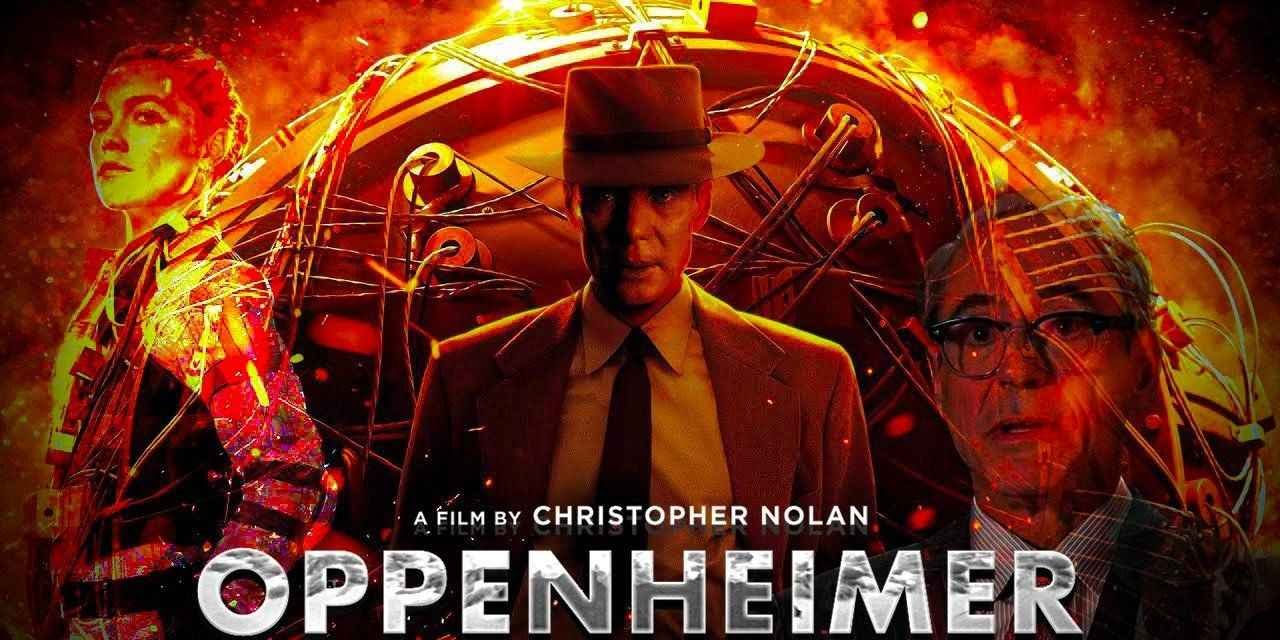Oppenheimer Vocabulary List for English Learners

The movie Oppenheimer introduces many challenging words related to science, history, and ethics. Understanding these words can help English learners follow the story better and learn new vocabulary. This guide explains key terms from the movie in simple language, making it easy for learners to improve their skills while enjoying the film.
Scientific Terms in Oppenheimer Vocabulary
- Isotope /ˈaɪ.sə.toʊp/
A form of an element that has the same number of protons but a different number of neutrons.
Example: Scientists in the Manhattan Project used isotopes to create the atomic bomb. - Critical Mass /ˈkrɪt.ɪ.kəl mæs/
The smallest amount of material needed to start a nuclear reaction.
Example: The team needed to calculate the critical mass to make the bomb work. - Thermonuclear /ˌθɜːr.moʊˈnuː.kli.ər/
A type of nuclear reaction that uses very high heat, like in hydrogen bombs.
Example: Thermonuclear weapons are even more powerful than the bomb used in Hiroshima. - Fissile Material /ˈfɪs.aɪl məˈtɪr.i.əl/
A substance that can sustain a nuclear reaction, like uranium or plutonium.
Example: Fissile material is the key ingredient for making atomic bombs. - Non-Proliferation /nɑːn.prəˌlɪf.əˈreɪ.ʃən/
Efforts to stop the spread of nuclear weapons.
Example: After the war, non-proliferation became an important global goal.
Historical and Political Terms in the Movie
- Hegemony /hɪˈdʒem.ə.ni/
Control or leadership by one country over others.
Example: The U.S. gained global hegemony after developing the atomic bomb. - Geopolitics /ˌdʒiː.oʊˈpɑː.lɪ.tɪks/
The way geography affects politics and international relations.
Example: The invention of nuclear weapons changed geopolitics forever. - Espionage /ˈɛs.pi.ə.nɑːʒ/
The act of spying to gather secret information.
Example: Espionage was a big concern during the Manhattan Project. - Appeasement /əˈpiːz.mənt/
Giving in to demands to avoid conflict.
Example: Appeasement was a controversial strategy during World War II. - Scorched Earth Policy /skɔːrtʃt ɜːrθ ˈpɑː.lə.si/
A military strategy where resources are destroyed to weaken the enemy.
Example: This strategy reminds us of the tough choices discussed in Oppenheimer.
Ethical and Philosophical Terms in Oppenheimer Movie
- Utilitarianism /ˌjuː.tɪˌlɪˈter.i.ə.nɪz.əm/
The idea of choosing actions that help the most people.
Example: The scientists debated utilitarianism when deciding to build the bomb. - Moral Ambiguity /ˈmɔːr.əl ˌæm.bɪˈɡjuː.ɪ.ti/
When it’s hard to tell right from wrong.
Example: The movie explores the moral ambiguity of creating weapons. - Deterrence Theory /dɪˈtɜːr.əns ˈθɪə.ri/
The idea that threatening punishment can stop bad actions.
Example: Deterrence theory became a key part of Cold War strategies. - Existential Risk /ˌɛɡ.zɪˈstɛn.ʃəl rɪsk/
A threat that could wipe out humanity.
Example: The atomic bomb represents the first real existential risk in history. - Pacifism /ˈpæs.ɪˌfɪz.əm/
The belief in avoiding war and violence.
Example: Some scientists felt pacifism was the only ethical choice.
Why Learn Oppenheimer Vocabulary?
Learning these words can help you:
- Understand the movie better.
- Discuss important historical events like the Manhattan Project.
- Improve your English skills with advanced yet practical vocabulary.
How to Use This Vocabulary
- Watch the Movie: Try to listen for these words when watching Oppenheimer.
- Practice Writing: Use the terms in sentences to explain the film’s events.
- Discuss with Friends: Talk about the movie and use the vocabulary to share your thoughts.
This guide to Oppenheimer vocabulary makes learning new words fun and practical for English learners. By mastering these terms, you can gain deeper insights into the film and the history it portrays. Keep learning and enjoy the journey!



0 Comments